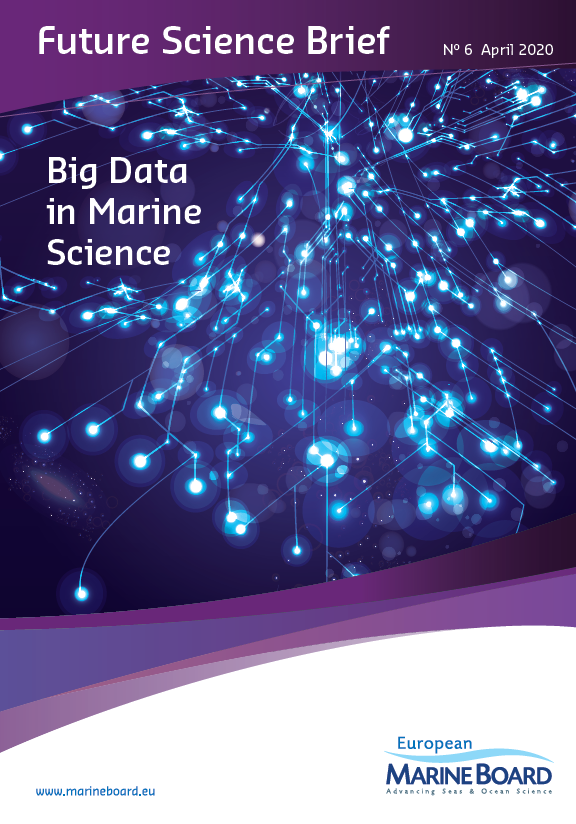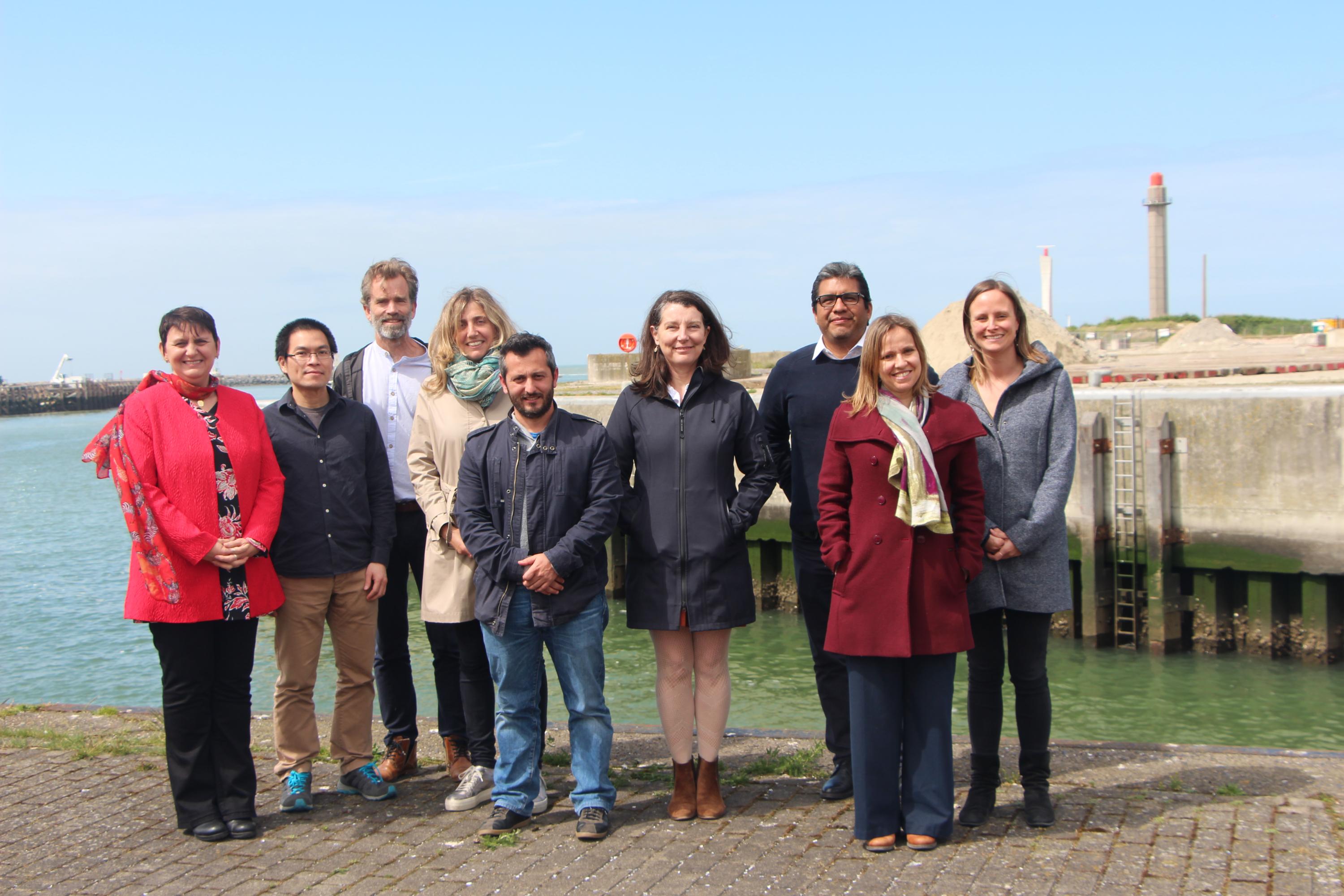Output

The final output for this working group is the EMB Future Science Brief No. 6 'Big Data in Marine Science', launched during a dedicated webinar on 29 April 2020 from 13h00-15h00 (Brussels time). The webinar included short talks by authors of the Future Science Brief: Federica Foglini (CNR, Italy), Ketil Malde (IMR, Norway), Matthias Obst (Univ. Gothenburg, Sweden) and Jerry Tjiputra (NORCE, Norway) followed by a question and answer session with working group members. You can find the agenda here, and recordings of the talks on the EMB YouTube Channel.
Download the EMB Future Science Brief No.6 here.
Download infographic summaries here.
The 7th EMB Forum was held online on Friday 23rd October 2020, with a focus on Big Data in Marine Science: Supporting the European Green Deal, EU Biodiversity Strategy, and a Digital Twin Ocean. You can find out more here.
EMB co-organized a workshop on Big Data at European Maritime Day 2019 on 16-17 May 2019 in Lisbon, organized together with Campus Mondial de la Mer and EMODnet.
EMB Science Webinar on big data and the value chain of ocean CO2 measurements (May 2021)
EMB Science Webinar on Machine learning to unlock the potential of plankton imaging big data (December 2022)
Background

Data-driven innovation is driving a decline in the cost of data collection, storage and processing. Together with the increasing use of the internet, particularly for socio-economic activities, huge volumes of data are being generated and used – commonly referred to as “Big Data”.
The Big Data revolution, together with open science, brings about novel ways of understanding and addressing environmental challenges. This enables scientists in their research, including cloud based analyses of big geospatial data for the simulation of events e.g. flooding and enabling policy-makers to make informed and evidence-based decisions based on large, integrated data sets, e.g. on climate change. But at the same time it presents new challenges for policy makers, scientific institutions and individual researchers in terms of ways to store, analyze, manage and share data.
It is clear that in the future, the amount of ocean data produced, and its speed of delivery will increase significantly. Therefore, it is crucial to assess the marine data management requirements and how current systems e.g. databases and cloud storage may need to evolve to ensure data are accessible and retain their quality and provenance. Currently there are no definitive solutions.
This working group provided input to the UN Decade of Ocean Science for Sustainable Development (2021-2030) societal outcome that aims for a predicted ocean.
Objectives
The main objectives of this working group include, but are not limited to:
- Highlight relevant developments of Big Data to the marine scientific community, including the latest innovations, challenges and opportunities regarding, among others, infrastructure, data communication, cloud architecture;
- Assess and set the development of Big Data applications in marine science within the larger frame of the Internet of Things for the ocean (“Ocean of Things”);
- Assess existing and new approaches in Big Data analysis (e.g. heterogeneous data fusion and “ocean analytics” and heterogeneous data fusion in coastal zones) for classification, clustering, regression, and statistical learning, using specific topics and examples;
- Propose solutions/recommendations on how to bridge the gap between Big Data analysis in marine science and ocean modelling in order to offer new approaches to more holistic environmental and earth science; and
- Raise awareness and inform European (e.g. EC) and National funders and wider policy makers about how the European marine science community can utilize Big Data and the gaps in knowledge, hardware (e.g. computer storage, facilities), software and human resources (skills etc.) that will be needed in the coming years.
Meetings
- 9-10 May 2019, Ostend, Belgium, news item here
- 9 September 2019, Online
- 25 October 2019, Online
Members
Chair: Lionel Guidi, Laboratoire d'Océanographie de Villefranche-sur-Mer, France
Co-chair: Antonio Fernandez Guerra, Lundbeck Foundation GeoGenetics Centre, University of Copenhagen, Denmark
Working group members:
Carlos Canchaya, University of Vigo, Spain
Edward Curry, Data Science Institute at NUI Galway, Ireland
Federica Foglini, Italian National Research Council (CNR), Italy
Jean-Olivier Irisson, Laboratoire d'Océanographie de Villefranche-sur-Mer, France
Ketil Malde, University of Bergen and Institute of Marine Research (IMR), Norway
C. Tara Marshall, University of Aberdeen, UK
Matthias Obst, University of Gothenburg, Sweden
Rita P. Ribeiro, University of Porto and INESC TEC - LIAAD, Portugal
Jerry Tjiputra, NORCE Norwegian Research Centre AS, Norway
Dorothee Bakker, University of East Anglia, UK
Contact at European Marine Board Secretariat: Britt Alexander Email